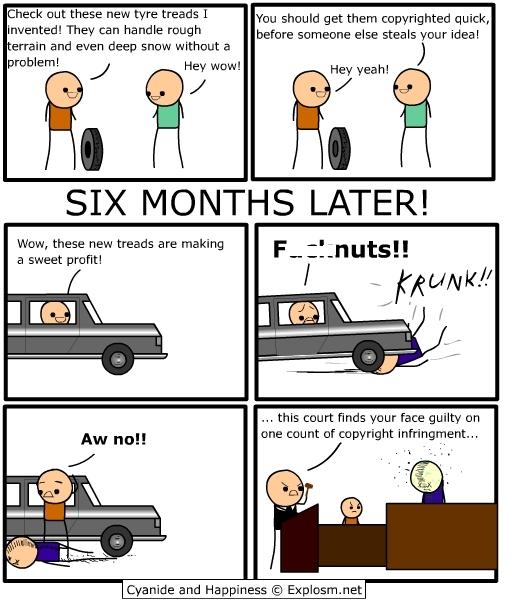
Recently, this blogger weighed in on the topic of the rise in intellectual property (IP) disputes in Kenya. This theme was also picked up by the Business Daily in their regular column here. For IP enthusiasts, these are exciting times in Kenya as new IP disputes are constantly reported. Here are some of this blogger’s thoughts on the subject in no particular order.
1. Public Awareness/Ignorance
Presently information can be disseminated faster, cheaper and more widely than ever before. From an IP perspective, this situation has resulted in an encouraging increase in public awareness about IP rights. The public is keen to fully understand the nature and scope of IP rights so as to effectively take steps to cash in on their creations, innovations and inventions. Public institutions, civil society organisations supported by main-stream media, private entities and individuals are all actively engaged in sharing as much information as possible on IP rights.
The key challenge in this regard is misinformation due to a glaring lack of essential literature on IP in Kenya to cater for IP professionals and the general public alike.
2. Legislating IP from the Bench
The rise in litigation on certain contentious IP matters may provide our courts with a good opportunity to create useful jurisprudence and set precedents on certain ambiguous areas of the current IP legislations. For instance, recent litigation has addressed issues such as the meaning of “counterfeit” contained in the Anti-Counterfeit Act, the protection of colour trade marks in Kenya and the protection of certain ICT-related innovations under copyright and patent laws. In this context, one must assume that the judges assigned to IP cases are properly equipped, trained and experienced in the various branches of IP.
This blogger therefore argues that strategic IP litigation should be encouraged especially where the determination of these test cases would serve to further develop IP law in practice. Indeed, in a country where the legislative process is often slow and bureaucratic, judicial law-making on various areas of IP may be a welcomed alternative that would serve to allign IP laws with present-day realities and developments.
3. Dispute Resolution Mechanisms
Apart from the courts, there are several options for IP dispute resolution namely, the Managing Director of KIPI; the Industrial Property Tribunal which hears appeals from the decisions of the Managing Director of KIPI; the Registrar of Trademarks; the Seeds and Plant Varieties Tribunal and; the Copyright Tribunal (the Competent Authority under the Copyright Act).
It is clear that these specialized IP Tribunals in Kenya have provided crucial fora for the settlement of the increasing cases of IP disputes. However these tribunals face considerable challenges and weaknesses in their operations that have hindered their realisation of expectations of players in the Intellectual Property arena. These challenges principally include: organization and qualifications of tribunal members; terms and period of service of tribunal members and; resource allocation to the tribunals.
4. Media and Law Reporting on IP
Most followers of IP developments in Kenya will attest to countless reported cases where the cause of action is based on copyright law but the IP litigant alleges patent infringement or vice versa. Our media houses lack adequate training on IP therefore they often inaccurately report court proceedings and other developments related to IP countrywide. For this blogger is often cautious when writing articles based on information from the media. However it is hoped that the media will retain a list of IP professionals and practitioners that they will use when publishing IP-related news so as not to mislead the general public.
In the area of law reporting, it is important to note that Kenya still does not have a comprehensive IP law digest on all the rulings from both the courts and the specialised IP tribunals relating to copyright, industrial property and plant breeders’ rights matters. However, in recent times, the Judiciary boasts of a vibrant National Council for Law Reporting (NCLR) whose nifty site is the first port of call for judicial opinions of the superior Courts of record in the land including those on IP matters. All in all, the lack of a systemic law reporting system on IP negatively impacts on the certainty of the law and affects the confidence of litigants. The benefits of a proper law reporting system cannot be gainsaid as it ensures the impartiality and transparency of all public officers presiding over IP disputes and ensures the evolution of IP jurisprudence.